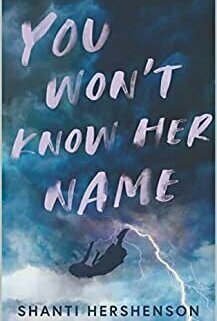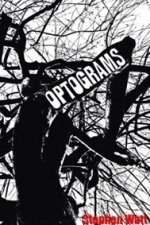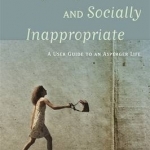Heather Cranmer (2721 KP) rated You Won't Know Her Name in Books
Feb 17, 2022
You Won't Know Her Name is certainly not for the faint of heart. With heavy themes such as bullying and sexual assault, I knew the plot would be a dark read. However, Hershenson writes like a pro, and the way she incorporates these themes into her story didn't put me off reading. The plot is solid and interesting if a little sad at what The Girl had to go through. I loved that there were no chapters, only poems and that each poem started with a title of what the short poem would be about. Each poem flows well into the next. It really made my heart hurt for all the injustices done to the girl (and her sister). What angered me the most was how the school failed this child. Unfortunately, many schools fail bullied children every day. (I speak from personal experience). I would say that there is a plot twist in this story, but there are no cliff hangers. It's just sad that there are so many people (children and adults alike) that have to go through such horrible bullying.
The characters in You Won't Know Her Name felt very realistic. We are told early on by the author that names aren't important so no names are ever mentioned in this story. We have "The Girl" who I felt so bad for. She didn't deserve any of the hate and the uncaringness she got. I just wanted to protect her so much throughout the story and tell "The Person" (The Girl's bully) to just back off. The Person acted in such a vile way toward The Girl and her sister. It made me wonder about The Person's background though. Was The Person being bullied at home to act out that way in school? I am, by no means, excusing The Person's behavior though.
Trigger warnings for You Won't Know Her Name include sexual assault (not graphic), profanity, talks of suicide, and violence. The author has included trigger warning notices at the start of each poem that could possibly trigger some readers though.
You Won't Know Her Name is a sad but a good read. There is some good to come out of it though. You Won't Know Her Name is a thought provoking read about a subject that, sadly, many children (and adults) have to deal with although they shouldn't.
Overall, You Won't Know Her Name is a well written piece of poetic literature that everyone should read. I would highly suggest that parents read it with their child and discuss it. If you are a librarian, buy this book for your library. It's not a long book either, so even the most hesitant reader could get a lot from it. I would definitely recommend You Won't Know Her Name by Shanti Hershenson to those aged 14+. Trust me, this is a book that needs to be read.
Eilidh G Clark (177 KP) rated Optograms in Books
May 13, 2017
I go to my room, wiping
the admirer’s lipstick clean
with tights beneath jeans
retrieved from a friend’s house,
and with the words
Big Girl’s Blouse
reverberating inside my head
This poem speaks volumes in so little words and the reader is forced to look inwardly at their own behaviour toward people who do not conform to the norm. Similarly, ‘Prayers to Aliens and Satellites’ is a raw and candid view of homelessness which digs deep into the readers conscience,
where bloodless, xylophonic fingers
sink into armpits –
petitioned hands closed to benefits
and the friendships of passersby.
Like the previous poem, ‘Prayers to Aliens and Satellites’ urges the reader to become more aware of the social problems in society. If these poems are not enough to capture the heart of the reader, Watt surprises us with his heart crushing honesty in poems such as ‘Clinics Lip’ – a grief stricken account of miscarriage,
A husband, once the acme of affection,
now lollygagging in the garden;
crossmaker in waiting
for the small plot earmarked for the hill’s crest.
My own personal favourite is ‘Trouble was Someone Else’s Kid’, a short account of childhood memories, like a fragment of memoir condensed into neatly arranged stanza’s. There is something funny yet tragic about this poem that brought to me both nostalgia and a desire to relive my own fading youth.
We moved in shadows, kept the lid
on, as if peanut butter sandwiches
had pasted our lips together.
Other neighbourhoods sizzled
with pyromaniacs and politics,
alcoholics who played tin whistles
when Di and Charles got hitched.
These are only a few of the delights that can be found in this little treasure of a pamphlet and I would urge poetry lovers as well as those who are new to poetry to seek out a copy of this work. With twenty-six wonderful poems Optograms, is undoubtedly one of the best collections of contemporary Scottish poetry that I have read.
To learn more about the Stephen Watt you can visit The Scottish Poetry Library, http://www.scottishpoetrylibrary.org.uk/poetry/poets/stephen-watt or like his Facebook page @StephenWattSpit. Optograms, can be purchased from stephenwattspit299@gmail.com or the publisher Marc Sherland marcsherland@me.com at Wild Word Press.
One of the things I noticed most was she details social rules in ways I never would have thought to do - she has a list of seven very specific rules for eye contact, for example. As an allistic person, most of those rules are things I do instinctively, without even really knowing the reason for them. Like, in conversation, looking up or to the side means you're thinking, looking down means you're done talking. I read that to my husband and he jumped in, surprised, with "so THAT'S why I get interrupted so much!" I never would have thought to codify that into words, but it's something I naturally do.
She talks about meltdowns vs shutdowns, which are things we've already learned the difference between with my husband, but we're both eager for strategies to avoid, mitigate, and recover from them. She gave some strategies as places to start, but that's hard to give general advice on as every autistic is so very different in that regard.
The chapter on alexithymia was really interesting. Alexithymia being an impairment in identifying and describing emotions. It leads to a lot of "Hey, are you okay?" "I don't know." "Well, how do you feel?" "I DON'T KNOW!" We'd already been introduced to this concept through her blog, but she expands on it in the book.
Another interesting (and applicable!) chapter was the one on executive dysfunction. (We joke that I am my husband's personal assistant - I keep his calendar and remind him of important dates/events/homework due dates, and sometimes nudge him to do things if it seems he's having trouble getting started.)
Kim uses the term Asperger's in her writing (as well as autism), but Asperger's has been rolled into the greater Autism Spectrum Disorder since 2013. Very recently there's been some debate about the Asperger name, as it's been revealed that Hans Asperger at least cooperated with the Nazis, and possibly was one himself. It's still used commonly, though, and there is a large community built around being Aspies. Personally, I think using the Asperger term is a little too divisive - it's basically the same as "high-functioning." But. I'm allistic and my opinion on the matter isn't the important one, so. We use autistic for my husband. (His choice, and when I asked his thoughts, he also thinks the Asperger term is divisive and not useful.) There's a number of Twitter threads and articles on the subject of using or not using the Asperger term, and what it means to the community.
Overall, this was a really great book for learning about how autism affects day-to-day life, and gave us lots of talking points and words for things we didn't have the vocabulary for. I'm looking forward to tackling the rest of my Autism Reading List.
You can find all my reviews at http://goddessinthestacks.wordpress.com

Thinkrolls: Kings & Queens
Education and Games
App
Thinkrolls Kings & Queens is an epic adventure of logic, physics and fun! Practice reasoning, memory...
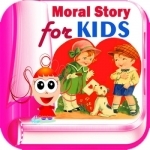
Best Moral Story Books for Kids
Book and Education
App
This Application Helps Kids to learn some good lessons about good habits to follow in life. You can...

NIV Bible: British Text New International Version
Book and Reference
App
The official UK NIV Bible reading app with British Text from Hodder & Stoughton, publishers of the...

PressReader
News and Magazines & Newspapers
App
Connecting you with the stories you love, from thousands of sources you trust. All you can read news...
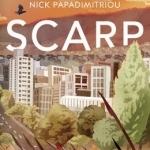
Scarp
Book
es it's difficult to define exactly what this book is: it mixes autobiography, local history,...

I AM That I AM ~ Affirmation Recorder & Meditation
Lifestyle and Health & Fitness
App
World's Best Affirmation Recorder For Positive Thinking. Get Inspired and Motivated to Make Awesome...

